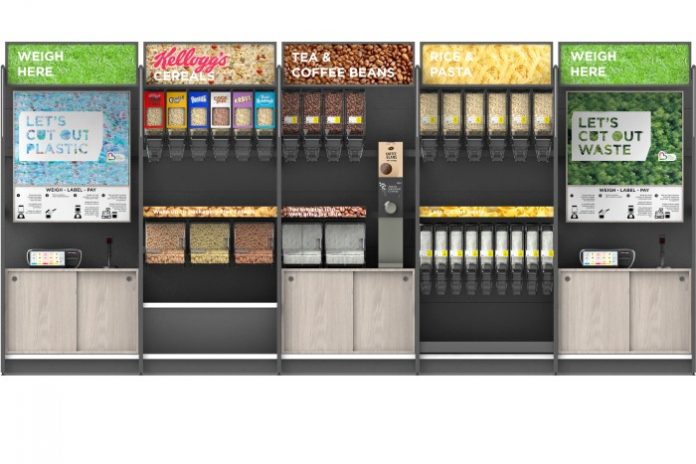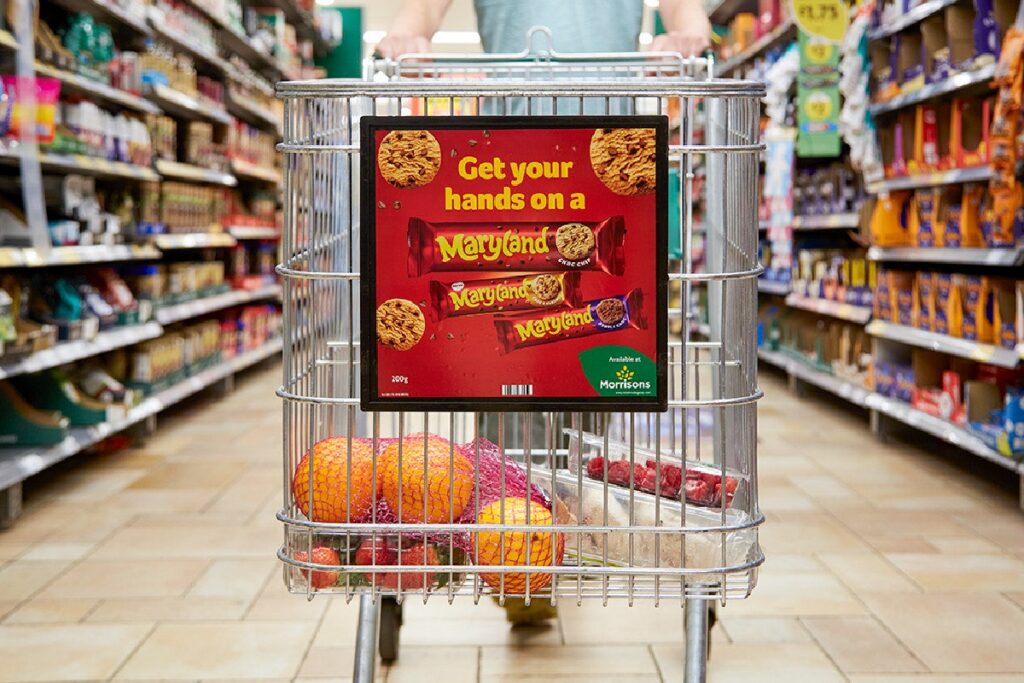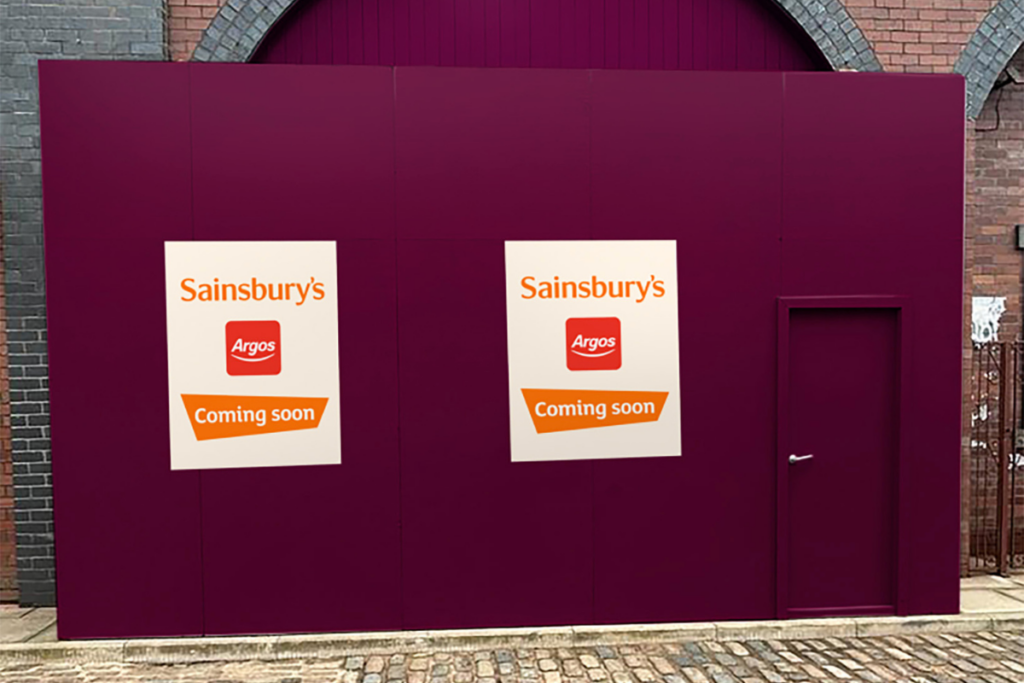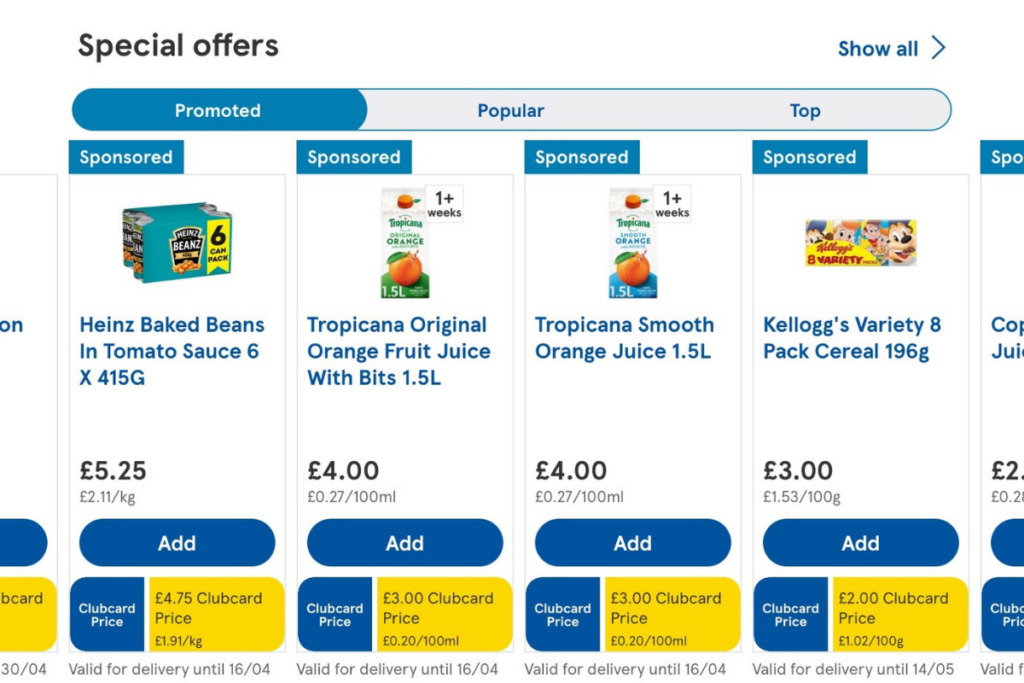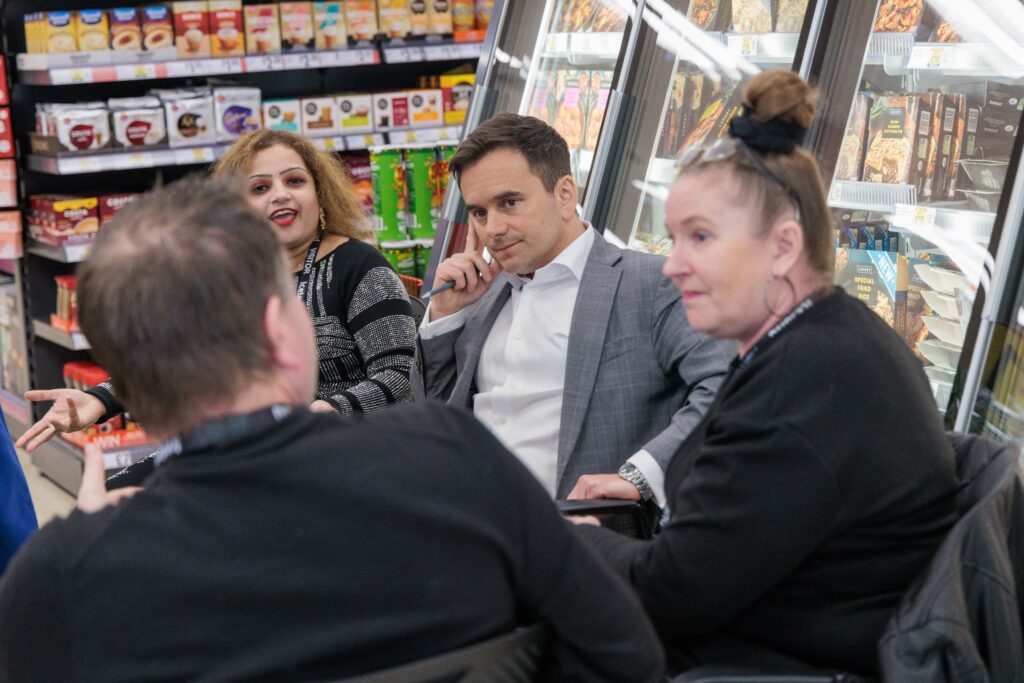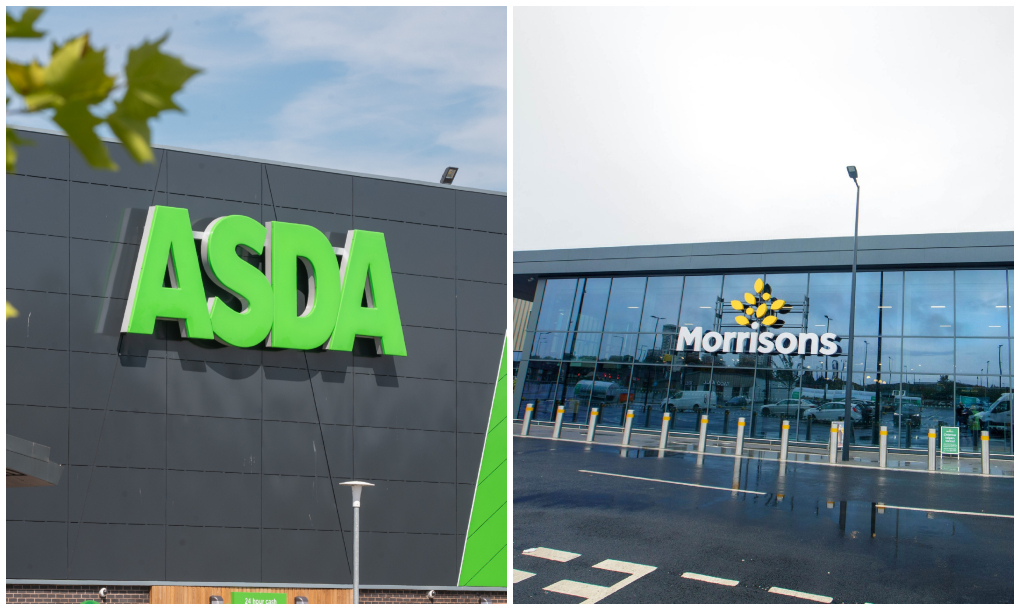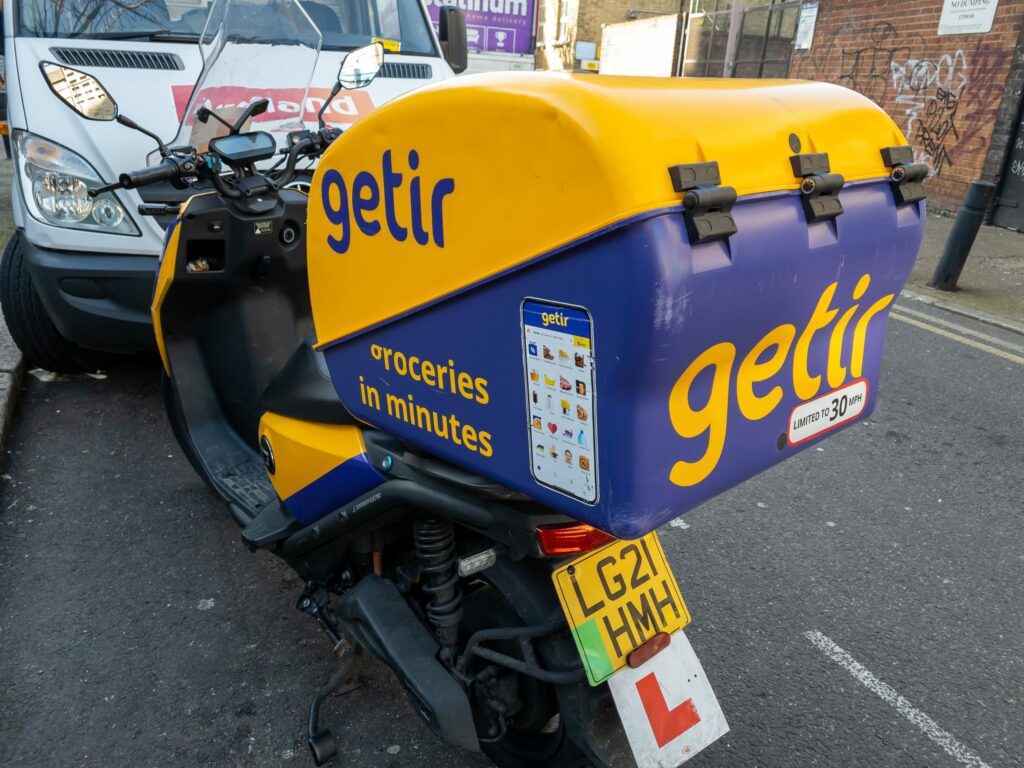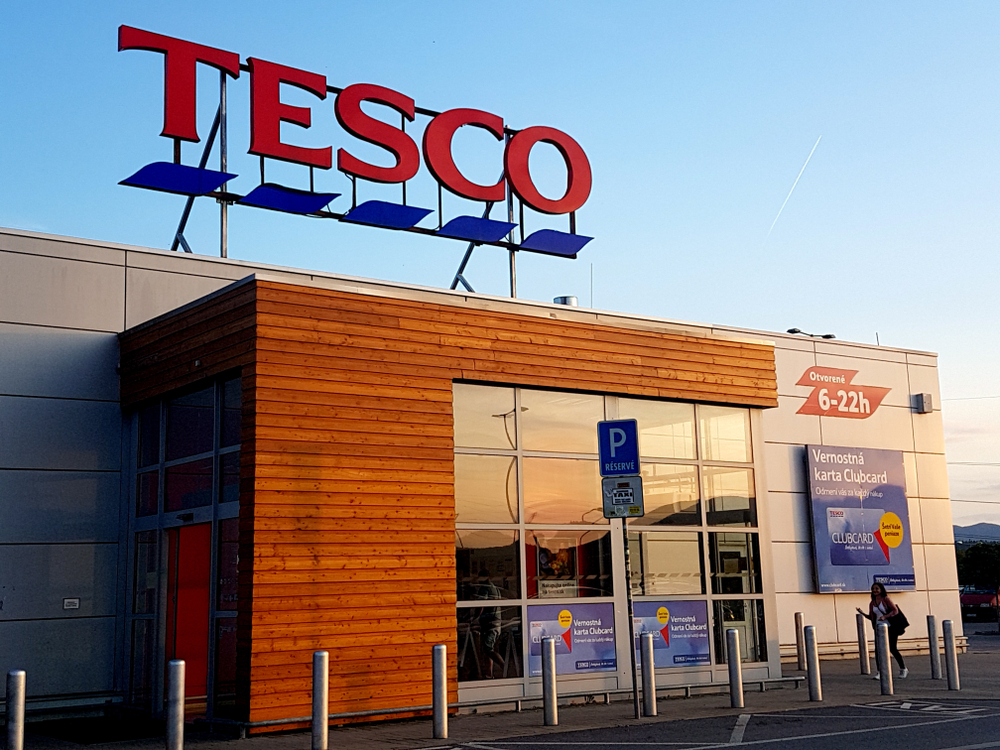Last year, Waitrose and Marks & Spencer became the first major retailers to introduce new refill or bring-your-own-container initiatives in response to growing concerns from consumers around excessive plastic waste from packaging.
Big 4 grocer Asda followed suit by kicking of 2020 with plans to launch a refill scheme at its Leeds store this May.
Loose fruit and veg and a ban on plastic bags are increasingly becoming common in grocers nationwide, but refill schemes are an emerging trend. Research from GlobalData found that 71.3 per cent of Brits were willing to use food refill services in order to cut down on waste and improve food sustainability for the environment.
While it’s seen as a practical way to shop for the future, some may argue the initiative drastically reduces shelf life. A major reason supermarkets use packaging is to protect food and prevent waste – particularly with fresh food.
“Single-use plastic can have a dramatic effect on the shelf life of food”
“Plastic is a brilliant material,” Giles Gibbons, chief executive of strategy consultancy Good Business, told Retail Gazette his unpopular opinion.
“It’s easy to produce, it’s lightweight, durable – and it makes food last longer.”
In fact, trade body British Plastics Federation found that barrier plastic can typically give food 18 months of shelf life without the need for preservatives.
Zana Busby, director at analyst firm Retail Reflections, agreed. She argued that despite its environmental drawbacks, “single-use plastic can have a dramatic effect on the shelf life of food”.
“Selling grapes in plastic bags or trays has been shown to reduce in-store waste by 20 per cent, and just 1.5g of plastic packaging can extend the shelf life of a cucumber from three to 14 days,” she said.
Waitrose recently launched a scheme where customers were able to fill up or refill their own containers with a range of products in a bid to reduce waste. It initially launched as a trial before being rolled out to several other stores.
M&S stepped-up its commitment to reducing plastic waste by introducing a scheme that encourages customers to bring their own reusable containers to its Market Place food-to-go counters, whereby they receive a 25p discount off each meal for doing so.
More recently, Asda unveiled plans to launch its first sustainability store at its Middleton branch in Leeds as part of its latest commitment to be environmentally friendly.
Daniel Harvey, manager at tech consultancy BearingPoint, said whether Asda’s trial will be successful or not depends on how the layout is designed to maximise space utilisation and enable customers to practically shop the range. He also said it depended on whether the dispensers minimise the risk of contamination.
“Maintaining the quality of the product through the earlier stages of the supply chain should be no more of a challenge, the challenges will come in store,” he said.
“The success of the trials will be driven by making the shopping experience work practically for products, customers and colleagues.”
Waitrose’s Unpacked initiative saw the grocer go plastic-free on 200 lines in its 24,600sq ft Botley Road store in Oxford in June last year. The majority of packaging was removed from 160 lines, replaced with a refill station for food items like cereal or pasta, and an array of loose fruit and veg.
At @Waitrose to see their “unpacked” trial to remove & reduce #plastic from our supermarket shop – really impressive. Met lots of happy shoppers who say this is what they want. Is this the future? Only if we get on board – & pressure the supermarkets to do the same. #WarOnPlastic pic.twitter.com/POW8xwK7xt
— Hugh Fearnley-Whittingstall (@HughFW) June 4, 2019
Big up Waitrose for their unpacked trial. Cutting single use plastic through reusable tubs and bottles and refill stations for things like pasta and even wine! They've already done this in places like Sweden. #singleuseplastic
— Kirsty (@kirstar19) June 4, 2019
Great to see the coverage this morning of the @waitrose #unpacked project launch in Oxford. Congrats to the team! A great opportunity for customers to trial a new way of shopping. https://t.co/o36fqg5Mfu
— Amy Morris (@Amy_KMorris) June 4, 2019
After receiving the positive feedback, Waitrose announced it was going to extend its Unpacked trail to other stores.
However, Busby said it seemed “mythical” that customers would turn up to supermarkets with jars or pots.
“It may work on small scales, in local, high street outlets, but it is hard to see it becoming sufficiently widespread to make a significant difference to the overall usage of plastics,” she said.
Simon Hedaux, chief executive of management consultancy ReThink Productivity, said retailers will face a challenge when it comes to a matter of efficiency: “Will customers change their shopping habits and remember to bring containers from home?”
After M&S Food kicked off 2019 by launching 90 lines of loose fruit and vegetables completely free of plastic packaging, the scheme’s three-month trial wasn’t extended after proving unpopular at its Tolworth store.
However, M&S didn’t stop there. In July it introduced a scheme that incentivised customers to bring their own re-usable containers at some of its food stores. Customers were able to bring their own reusable containers to M&S’s Market Place food-to-go counters in return for a 25p discount off each meal.
While Asda’s new concept hasn’t started yet, many have already expressed anticipation of the scheme on social media.
Asda is following in the footsteps of @waitrose by offering refill stations for food 👏
This is an important step for supermarkets to take in cutting down #plasticwaste and making #zerowaste options accessible.https://t.co/qf4i7JMCas #sustainability @asda
— Women in Sustainability (@SustWomen) January 29, 2020
https://twitter.com/IanLBoyd/status/1217773120666394626
When it launches in May, Asda said its Middleton store will feature new concepts to “encourage customers to reuse and refill” their plastics. The store will also include a “naked florist”, offering plastic-free flowers.
In addition, there will be a range of new recycling facilities, including a reverse vending machine for plastic bottles and cans and hanger recycling.
Customers shopping at the store will be asked to give their feedback on different trials, allowing Asda and its suppliers to understand more about how these innovations work in practice.
Asda said the trials will last for at least three months before a decision is made on whether to roll it out to other stores, retrial or stop.
“It’s great that Asda is experimenting with refill stations, for lots of reasons,” Gibbons said.
“There’s the immediate reduction in single use plastic. There’s the fact that this will help drive towards the broader patterns of behaviour change that we all need and increasingly want to make, particularly as the impact feels immediate and tangible.
“And there’s the fact that the initiative sends a strong signal about their intent to innovate to make a difference, which in turn is good for their brands and businesses. This makes it more than viable; it makes it a good idea.”
Asda will inevitably try to point to the gross reduction in single-use plastics; arriving at a fairly calculated, accurate overall figure, from one end of the supply chain to the other, but this is may be more difficult than expected.
It might be important to look at the overall impact of refill initiatives. Robust items such as pasta and rice tend to have relatively long shelf lives. The bigger risk might be quality impact on products that rely on single use plastic to retain their freshness, such as breakfast cereals.
A major issue for retailers with the refill model is that consumers may go across the street to a rival store that has packaged products if they’ve forgotten their containers – therefore affecting footfall and sales.
For many retailers, it might be a matter of priorities. What matters more: reducing single-use plastics or reducing food waste?
Click here to sign up to Retail Gazette‘s free daily email newsletter

